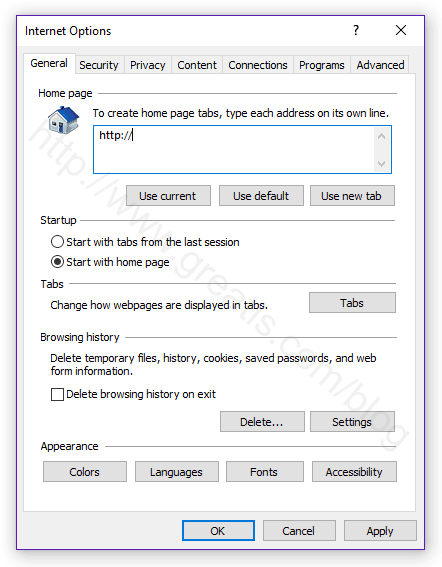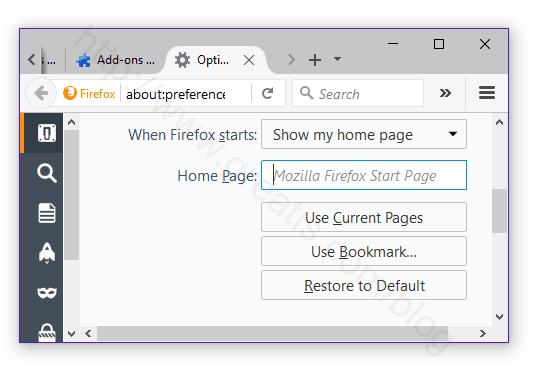 I recommend you UnHackMe - Ultimate Malware Killer for fast malware removal:
I recommend you UnHackMe - Ultimate Malware Killer for fast malware removal:
Free Download Fully Functional 30-day Trial. No credit card is required.
Reviews. EULA. Privacy Policy. Uninstall.
How can you remove the FILEKILLER RANSOMWARE ransomware?
FILEKILLER RANSOMWARE detected as Ransom.FILEKILLER.RANSOMWARE.
Ransomware attacks can appear out of nowhere nowadays.
And they are very powerful, not to mention they will try to acquire your personal data rather fast.
What you want to do is to find a quick and simple way to eliminate this malware from your computer!
The way you can identify an infection like this is when you see that your important documents are encrypted, and they have .FILEKILLER RANSOMWARE extension.
What is the FILEKILLER RANSOMWARE Ransomware?
This is a file-encrypting ransomware. The idea behind it is that it encrypts all or most of the personal documents that you can find on a victim’s computer with a very powerful encryption algorithm. Once the files are encrypted, then you will receive a message that your data is encrypted and the only thing you can do is to remove that encryption by paying a certain fee. Usually, this will cost you in Bitcoins and it can be very expensive.
How can the FILEKILLER RANSOMWARE ransomware get on your computer?
Just like any other ransomware or malware arrives on your computer.
FILEKILLER RANSOMWARE is basically coming from infected websites and files that you download from the web.
This is why you need to get your downloads only from reputable websites.
Otherwise, you will be placing all your data and content in danger. And it’s a very good idea to try and avoid such a thing.
When can you see that the computer is infected with the FILEKILLER RANSOMWARE ransomware?
Normally, you will notice that when the ransomware sends a message. They will inform you that the ransomware has encrypted all your files and you have to either pay the amount of content some specific email addresses.
You have 2 ways to remove FILEKILLER RANSOMWARE:

Why I recommend you to use an automatic way?
- You know only one virus name: "FILEKILLER RANSOMWARE", but usually you have infected by a bunch of viruses.
The UnHackMe program detects this threat and all others. - UnHackMe is quite fast! You need only 5 minutes to check your PC.
- UnHackMe uses the special features to remove hard in removal viruses. If you remove a virus manually, it can prevent deleting using a self-protecting module. If you even delete the virus, it may recreate himself by a stealthy module.
- UnHackMe is small and compatible with any antivirus.
- UnHackMe is fully free for 30-days!
Here’s how to remove FILEKILLER RANSOMWARE virus automatically:
STEP 1: Install UnHackMe (1 minute)
STEP 2: Scan for malware using UnHackMe (1 minute)
STEP 3: Remove FILEKILLER RANSOMWARE virus (3 minutes)
So it was much easier to fix such problem automatically, wasn't it?
That is why I strongly advise you to use UnHackMe for remove FILEKILLER RANSOMWARE redirect or other unwanted software.
How to remove FILEKILLER RANSOMWARE manually:
STEP 1: Check all shortcuts of your browsers on your desktop, taskbar and in the Start menu. Right click on your shortcut and change it's properties.
You can see FILEKILLER RANSOMWARE or another web site at the end of shortcut target (command line). Remove it and save changes.
In addition, check this command line for fake browser's trick.
For example, if a shortcut points to Google Chrome, it must have the path:
C:\Program Files (x86)\Google\Chrome\Application\chrome.exe.
Fake browser may be: …\Appdata\Roaming\HPReyos\ReyosStarter3.exe.
Also the file name may be: “chromium.exe” instead of chrome.exe.
STEP 2: Investigate the list of installed programs and uninstall all unknown recently installed programs.
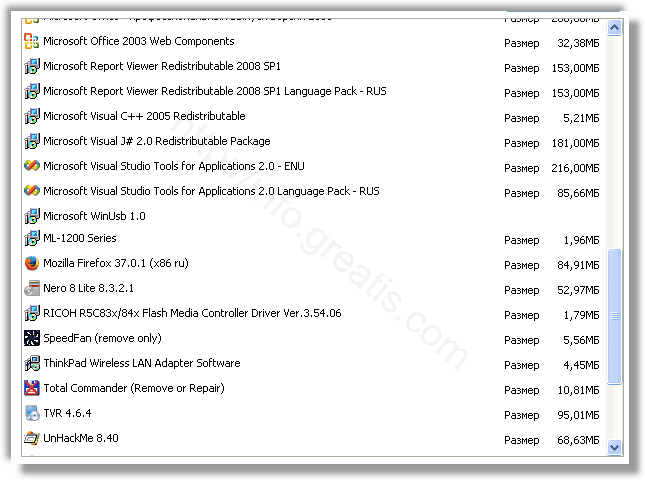
STEP 3: Open Task Manager and close all processes, related to FILEKILLER RANSOMWARE in their description. Discover the directories where such processes start. Search for random or strange file names.
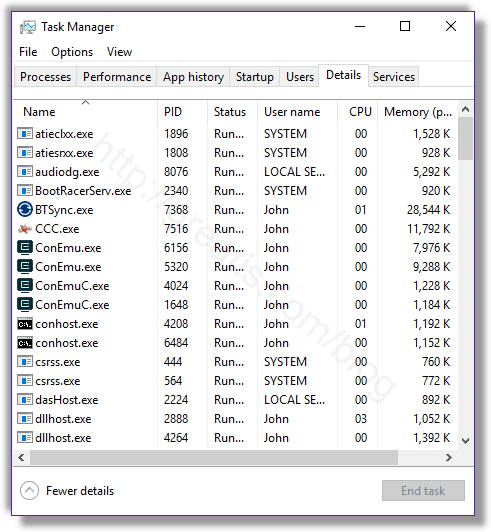
Remove FILEKILLER RANSOMWARE virus from running processes
STEP 4: Inspect the Windows services. Press Win+R, type in: services.msc and press OK.
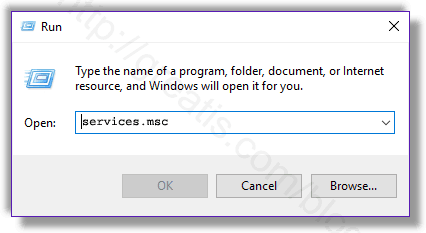
Remove FILEKILLER RANSOMWARE virus from Windows services
Disable the services with random names or contains FILEKILLER RANSOMWARE in it's name or description.
STEP 5: After that press Win+R, type in: taskschd.msc and press OK to open Windows Task Scheduler.
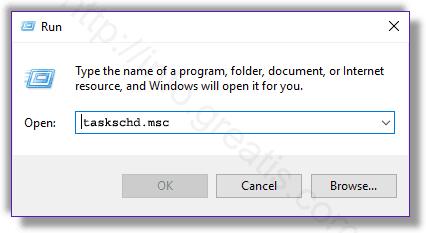
Delete any task related to FILEKILLER RANSOMWARE. Disable unknown tasks with random names.
STEP 6: Clear the Windows registry from FILEKILLER RANSOMWARE virus.
Press Win+R, type in: regedit.exe and press OK.
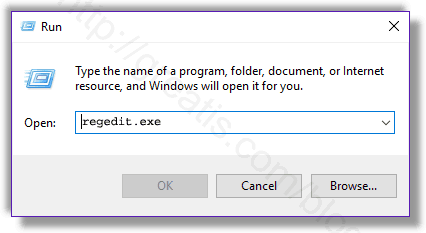
Remove FILEKILLER RANSOMWARE virus from Windows registry
Find and delete all keys/values contains FILEKILLER RANSOMWARE.
STEP 7: Remove FILEKILLER RANSOMWARE from Google Chrome.
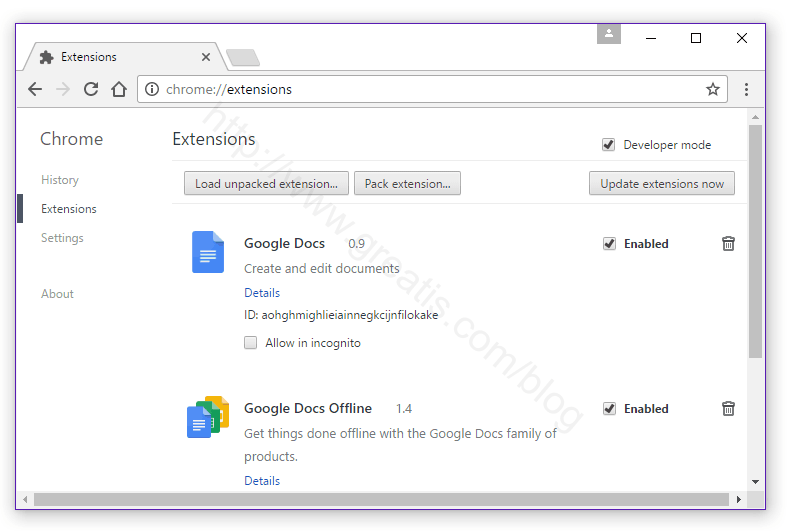
STEP 8: Remove FILEKILLER RANSOMWARE from Internet Explorer.
STEP 9: Remove FILEKILLER RANSOMWARE from Mozilla Firefox.
STEP 10: And at the end, clear your basket, temporal files, browser's cache.
But if you miss any of these steps and only one part of virus remains – it will come back again immediately or after reboot.

